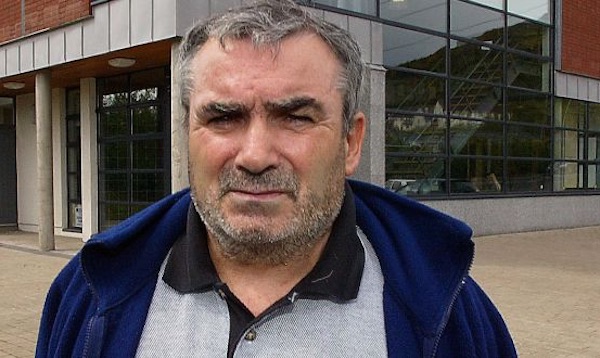
Sinn Fein has been urged to exonerate those republicans and others who were executed as ‘informers’ on the orders of a British double agent operating inside the Provisional IRA.
West Belfast man Freddie Scappaticci (pictured), who fled into exile in 2003, is widely believed to have been one of Britain’s top spies inside the IRA, known under the codename of ‘Steak Knife’ or ‘Stakeknife’. He headed up the IRA’s internal security department, reporting directly to the northern commander.
A television documentary this week has again pointed to a cover-up in regard to the scores of executions by Stakeknife which were facilitated or encouraged by the British Army’s murderous Force Research Unit (FRU).
Amid efforts by families of the victims to secure justice and to clear their names, journalist and activist Anthony McIntyre, a former republican prisoner, said it would be hypocritical not to lend support.
He called for posthumous pardons to be issued to all those killed as informers under the watch of British agent Freddie Scappaticci.
Republicans who campaigned against other miscarriages of justice should not rely on “corrupted and contaminated evidence”, he said.
In 2003, when Scappaticci was first named in the media as a top British agent, Sinn Fein was accused of facilitating the cover-up. Senior Sinn Fein figures, particularly Martin McGuinness and Danny Morrison, denounced those media reports as an attempt to damage the peace process.
The party no longer denies Scappaticci was a spy, but is now under pressure to help resolve the allegations that he killed up to 18 people as alleged informers while operating under the direction of the FRU.
There is little faith that the British state will carry out a meaningful investigation into its own crimes, but under pressure from the families of the victims, a PSNI police inquiry -- Operation Kenova -- has now been set up, headed by English police chief Jon Boutcher.
‘TAINTED’
Former IRA member McIntyre, who knew Scappaticci, said Sinn Fein and the Provisional IRA had behaved badly by not acknowledging the situation.
“The IRA leadership acted to protect themselves and their own reputations by covering up the truth about Stakeknife, rather than reaching out to help those who had been wronged,” he said.
“Stakeknife sent dozens of people to their deaths as alleged informers. Surely the IRA leadership is not going to continue to rely on the evidence of a British agent?
“Any case he was involved with is tainted beyond salvation. The evidence can’t be relied upon.”
The verdicts made by the IRA under Scappaticci, which brought shame and anguish to those identified and their families, must be withdrawn, he said.
“Republicans who were screaming about miscarriages of justice in the cases of the Birmingham Six and Guildford Four cannot remain silent on this,” he added.
“Stakeknife’s involvement makes the verdict reached against dozens of men and women gravely unsafe. I’m thinking in particular of the executions of Charlie McIlmurray, Michael Kearney, Vincent Robinson and Anthony McKiernan.”
In this week’s documentary, BBC Panorama reporter John Ware claimed that when Scappaticci was outed by the media, he decided not to flee the country but instead met two senior PIRA figures. They reached “an understanding” that he would issue a firm denial that he was Stakeknife, which Sinn Fein wouldn’t challenge.
Sinn Fein have not commented on the allegations.
However, Relatives for Justice director Mark Thompson said responsibility for the agent’s activities rests with the British government.
“The bottom line was that the British government were playing God,” he said.
“They were deciding who lived and who died and that is totally unacceptable.
“The British government have responsibility and they need to be accountable through a process that is open, transparent and independent to provide accountability to the families.”
Mr Thompson, who has also investigated the activities of Stakeknife, said the British government deliberately had no policy on how agents and informers should be handled during the conflict.
“The absence of rules is the policy that allowed this to happen.”
![[Irish Republican News]](https://republican-news.org/graphics/title_gifs/rn.gif)
![[Irish Republican News]](https://republican-news.org/graphics/title_gifs/harp.gif)

